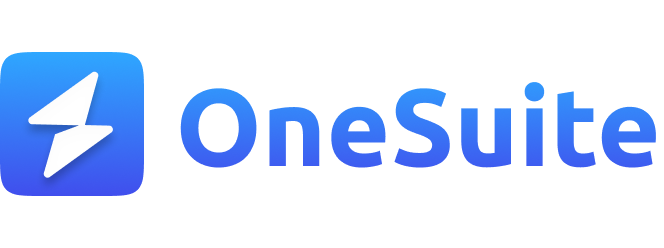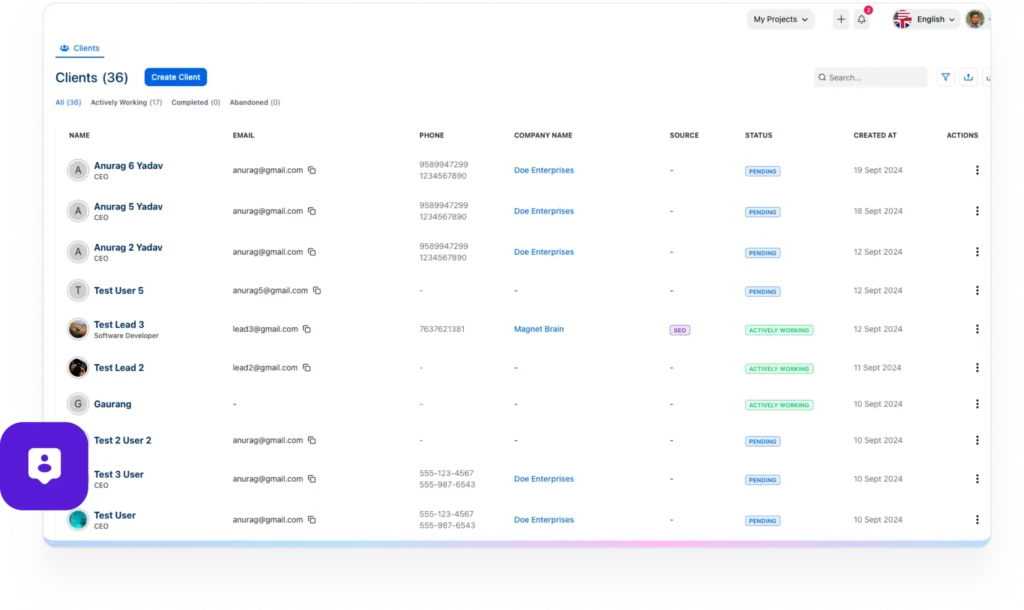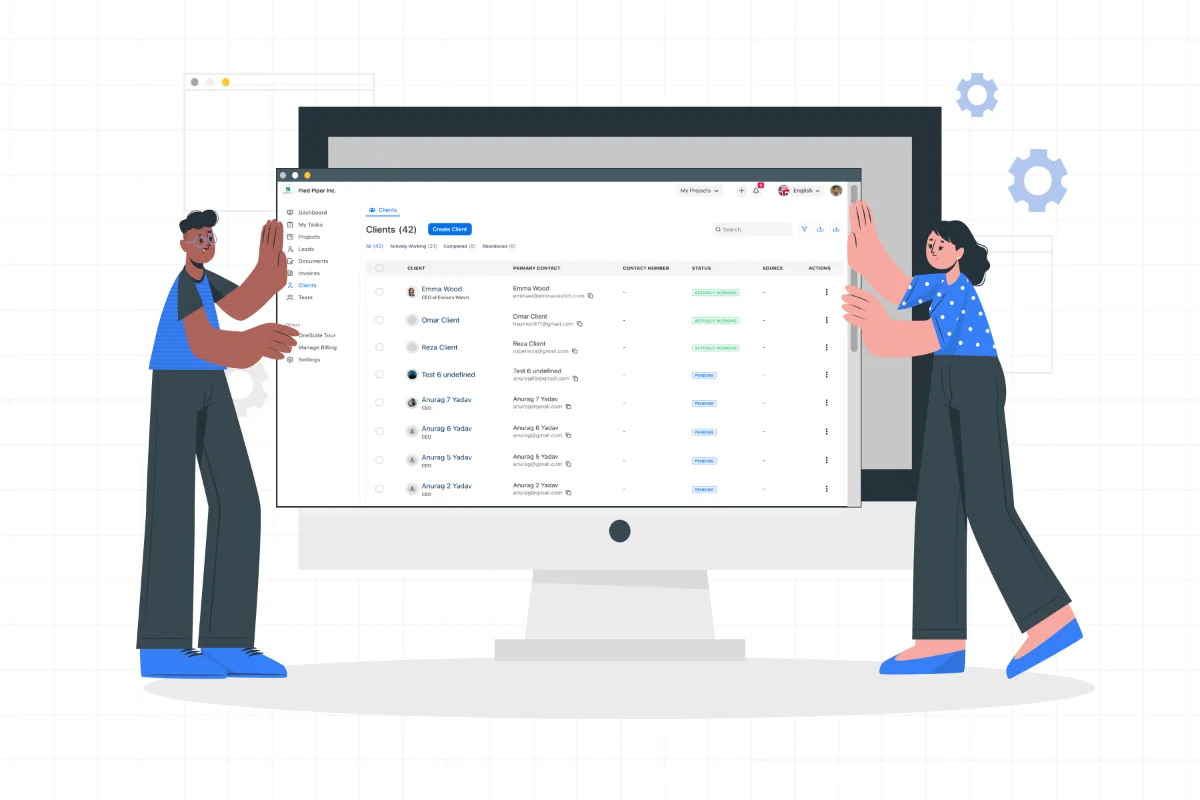
A client portal is a secure, online platform that allows businesses to interact with clients in one seamless, centralized space. Through the portal, businesses can share documents, track project progress, and manage communication—creating a more efficient and organized workflow.
In today’s digital world, client portals have become a must-have tool for businesses looking to improve client experience, streamline workflows, and ensure data security.
Whether you’re running a small business, an agency, or offering services, a client portal helps you stay organized and enhance client satisfaction.
In this blog, we’ll explore what a client portal is, how it works, and why it’s a must-have for your business. Let’s dive in!
What is a Client Portal?
Honestly, I had no clue what a client portal was until I heard about it a while back. But when I started struggling to keep up with multiple projects, I decided to look into it.
A client portal is a platform that allows your clients to participate in and actively oversee their projects. This involvement builds transparency and gives clients a sense of control and trust in client relationships, all in one place.
This was exactly what I needed. I wanted something where all of my projects and tasks would be recorded, and my client could access that platform and check out the progress without asking me over and over.
Let’s break it down for you: the client portal is a cloud-based platform where you can update all your tasks and projects. The client can log in through an electronic gateway, browsing the web to see how things are going.
A good portal even offers extra tools, like file sharing, invoicing, and branding options, making it easier for both you and your clients to stay organized and connected.
Key Features of an Effective Client Portal
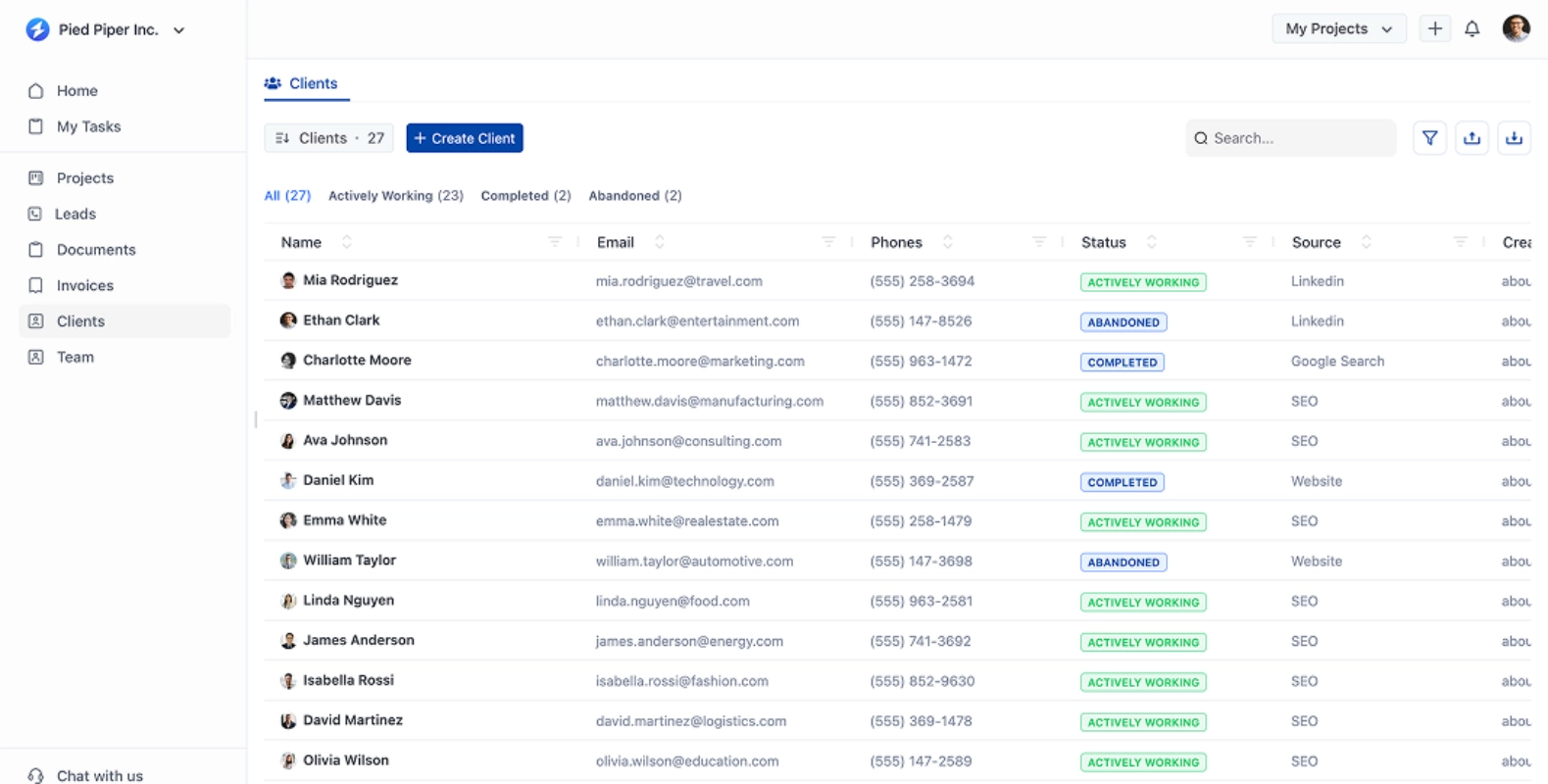
Personalized Dashboards
Each client gets a tailored dashboard that displays important information and project updates relevant to them. This personalized experience helps clients stay organized and easily track their progress in real-time.
Document Sharing and Collaboration
A secure, centralized space for sharing, reviewing, and collaborating on documents ensures smoother communication between businesses and clients. Clients can upload, download, and provide feedback on files, reducing miscommunication and enhancing project efficiency.
Secure Storage and Data Protection
Client portals prioritize security by encrypting sensitive data and offering secure access to confidential information. This not only helps businesses stay compliant with privacy regulations but also builds trust with clients by ensuring their data is protected.
Customization to Match Your Brand
Businesses can customize the portal’s interface to reflect their brand, ensuring a seamless, professional experience for clients. This feature allows businesses to maintain brand consistency and create a personalized interaction with every client.
User-Friendly Design
A simple, intuitive design makes it easy for clients to navigate the portal and access the information they need quickly. By minimizing complexity, businesses can increase client adoption and ensure smoother interactions.
Payment and Billing Integration
Client portals often include integrated payment systems, allowing clients to view invoices, make payments, and manage financial transactions securely. This feature streamlines the payment process and reduces the need for administrative follow-ups.
Client Portal Examples and Practical Use Cases
A client portal is a powerful tool that can help businesses across various industries streamline their operations, enhance communication, and improve client satisfaction.
Here are practical examples illustrating how different industries benefit from using a client portal:
1. Digital Agencies
For digital agencies, a client portal acts as a central hub for sharing project updates, marketing reports, and performance metrics. Clients can securely log in to track the progress of campaigns, view real-time analytics, and provide feedback—all from a user-friendly dashboard.
For example, a digital marketing agency might use a client portal to share social media performance reports, SEO rankings, and ad campaign results.
Clients can access these documents at any time, ensuring transparency and enhancing collaboration, making it easier to adjust strategies based on real-time data.
2. Design Agencies
Design agencies benefit from client portals by offering a secure space where clients can review and approve design drafts. Portals help agencies streamline the feedback process and keep all design-related communication in one place.
For instance, a creative agency might use a client portal to share logo designs, branding concepts, or website wireframes. Clients can leave comments, track revisions, and approve designs, all while having secure access to the files. This speeds up the approval process, minimizes confusion, and improves client satisfaction.
3. Legal Firms
For legal firms, a client portal provides a secure way to exchange sensitive documents like contracts, legal filings, and case updates. Clients can log in to access their case files, track progress, and communicate directly with their attorney without the risks associated with email or paper-based communication.
For example, a law firm can use a client portal to securely share important legal documents, track case milestones, and store confidential client information. This improves security, enhances client trust, and reduces administrative time spent on document management.
4. Software Companies
Software companies can leverage a client portal to manage customer support, share software updates, and facilitate project tracking. Clients can log in to view the progress of software development, report issues, and access documentation—all in one secure place.
For example, a software company may use a client portal to allow clients to track the status of custom software projects, download updates, or submit bug reports. This helps improve client relationships by providing transparency and offering a streamlined way to manage technical requests.
5. Solopreneurs
For solopreneurs, a client portal is an invaluable tool to organize and manage client interactions, share files, and handle payments efficiently. This allows solopreneurs to offer a professional experience, even when working independently.
For instance, a freelancer might use a client portal to share deliverables, invoice clients, and track payments. Clients can access the portal anytime, ensuring smoother interactions, less back-and-forth communication, and a better overall experience for both parties.
Save Big with OneSuite Portal
Save Big with OneSuite Portal
Common Client Portal Challenges and Solutions
Implementing a client portal can bring numerous benefits, but it’s not without challenges. Addressing these issues early on ensures a smooth implementation and enhances client and team satisfaction.
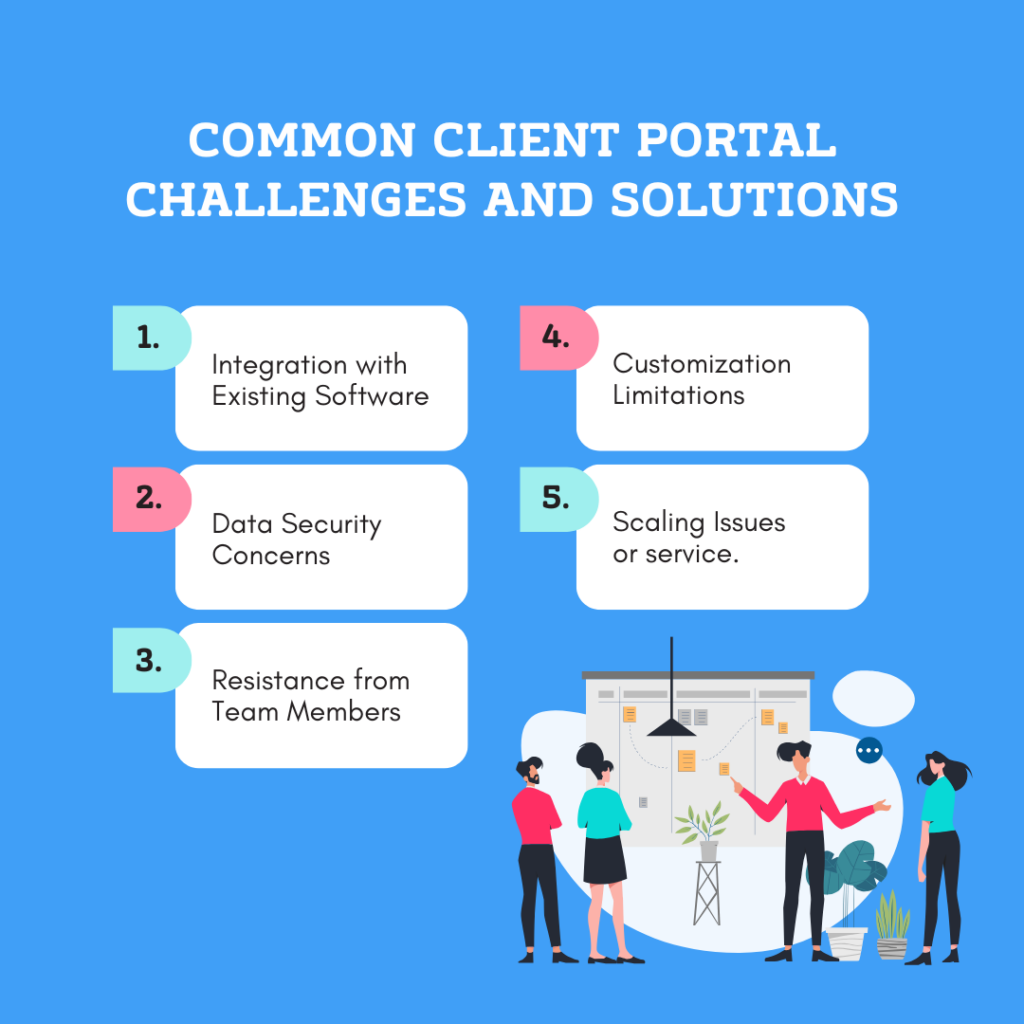
Integration with Existing Software
One of the biggest hurdles is integrating a client portal with your current systems, especially if your software is outdated. Carefully assessing integration requirements and selecting a portal that supports flexible integrations can streamline this process, ensuring your systems work together seamlessly.
Data Security Concerns
Security is a major concern when handling sensitive data. To protect client information, it’s crucial to use strong encryption, multifactor authentication, and ensure compliance with industry regulations. Clear communication about security measures builds trust and reassures clients that their data is protected.
Resistance from Team Members
Introducing a client portal may face resistance from employees unfamiliar with the system. To ease the transition, provide training and emphasize the benefits, such as improved efficiency and enhanced security. Clear communication and ongoing support will help employees embrace the new system.
Customization Limitations
Many client portals have limited customization options, which may not meet your business’s unique needs. Choose a portal solution that allows for customization in terms of branding, workflows, and integrations to ensure the portal fits your business perfectly.
Scaling Issues
As your business grows, so should your client portal. Choose a scalable solution that can handle more users, data, and projects as your business expands. This ensures that your portal remains efficient and effective as your client base grows.
Read Also: Discover top project management software with client portal.
Faqrently Asked Questions (FAQs)
What is the Best Software to Use for a Client Portal?
The best client portal software depends on your specific needs. If you’re looking for a customizable, secure solution with features like document sharing, project tracking, and payment integration, OneSuite is an ideal choice. It provides a user-friendly interface, scalability, and excellent security to streamline client communication and improve efficiency.
Can I Track Projects with a Client Portal?
Yes, client portals are excellent for tracking project progress. They allow businesses to share real-time updates, including project stages, timelines, and milestones. Common features like Kanban boards, Gantt charts, and progress bars provide clients with a clear view of the project’s status.
With a client portal, clients can log in, view progress, track tasks, and provide feedback, all in one secure space. This improves transparency, boosts client satisfaction, and streamlines communication.
Conclusion
Adopting a client portal is essential for businesses aiming to enhance client relationships and streamline operations. Whether you’re in a creative agency, law firm, or any other industry, a secure client portal centralizes communication, reduces administrative tasks, and boosts client satisfaction.
The great news is that creating and customizing a client portal has never been easier. With Onesuite, businesses can design a secure and personalized portal that perfectly fits their needs.
Whether you’re sharing documents, tracking projects, or managing payments, Onesuite provides a powerful platform that helps businesses maintain smooth operations and offer exceptional client experiences.
Now is the time to transform your client engagement. Start building your client portal with Onesuite today and take your business to the next level.
Find a Better Way to Grow
OneSuite streamlines projects, clients, and payments in one place, making growth hassle-free.
